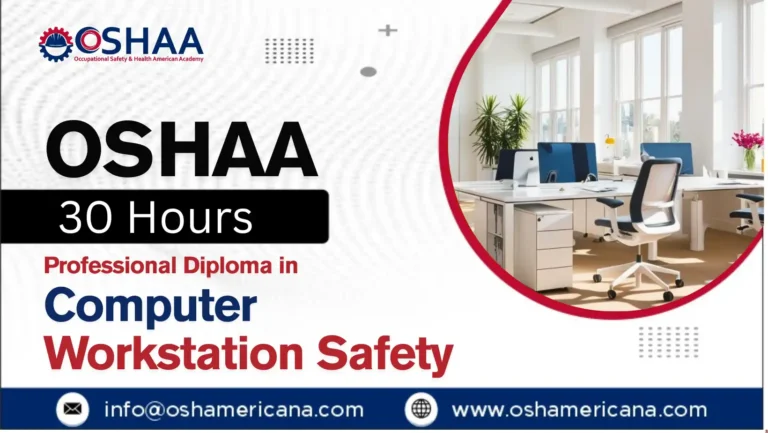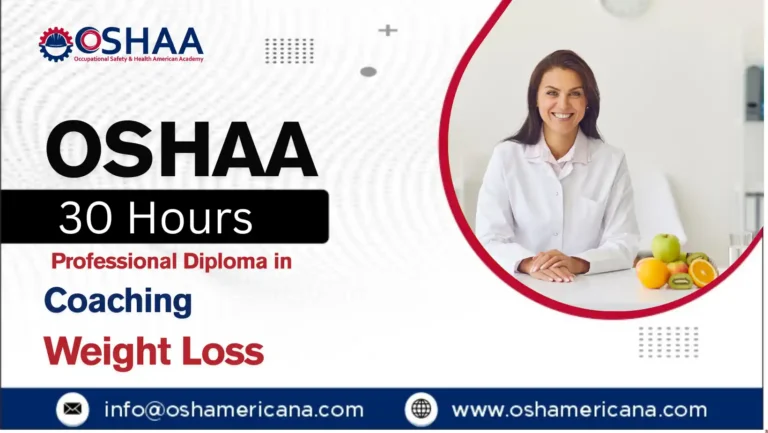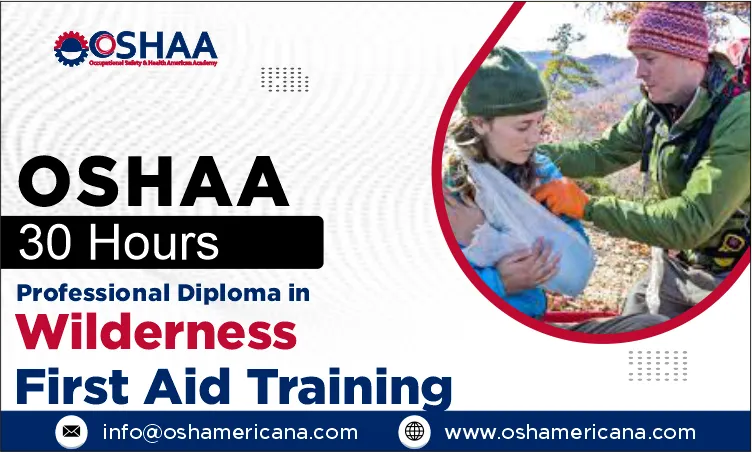Master pediatric emergency response with the OSHAA 30-Hours Pediatric Advanced Life Support (PALS) course. Gain vital skills to save children’s lives.
The OSHAA 30-Hours Pediatric Advanced Life Support (PALS) course is a comprehensive and professionally structured training program designed to equip healthcare providers with the advanced knowledge and practical skills required to manage life-threatening emergencies in infants and children. In critical pediatric situations, the ability to recognize symptoms early, provide swift interventions, and perform effective resuscitation techniques can make the difference between life and death. This course prepares participants to deliver evidence-based, internationally recognized life support measures in compliance with OSHA and global healthcare standards.
The OSHAA 30-Hours Pediatric Advanced Life Support (PALS) course goes beyond the basics of emergency care and provides in-depth training on resuscitation protocols, airway management, recognition of pediatric emergencies, and critical care support for children. Pediatric Advanced Life Support is a specialized field because children present unique physiological characteristics that differ significantly from adults. Their responses to emergencies such as cardiac arrest, respiratory failure, or shock require tailored interventions, and this program ensures that learners acquire the precision, confidence, and leadership skills necessary to respond effectively.
Healthcare professionals working in emergency departments, intensive care units, neonatal wards, and pediatric clinics will find the OSHAA 30-Hours Pediatric Advanced Life Support (PALS) course essential for their practice. This training not only enhances their ability to perform critical interventions but also strengthens their capacity to work as part of a coordinated emergency response team. The course emphasizes early recognition of warning signs, effective use of resuscitation equipment, structured communication during crises, and adherence to global PALS protocols.
The importance of Pediatric Advanced Life Support cannot be overstated. Children are physiologically different from adults, and without specialized training, even experienced healthcare professionals may face challenges when responding to pediatric emergencies. By completing the OSHAA 30-Hours Pediatric Advanced Life Support (PALS) course, participants gain the confidence and competence needed to manage complex pediatric cases. The program integrates theoretical learning with practical application, ensuring that learners are prepared to provide life-saving care across a range of healthcare environments.
Designed for doctors, nurses, paramedics, and other medical professionals, the OSHAA 30-Hours Pediatric Advanced Life Support (PALS) course offers both professional development and compliance benefits. By aligning with OSHA requirements and international healthcare guidelines, this certification not only improves clinical practice but also enhances career opportunities in hospitals, clinics, and emergency response organizations worldwide.
Completing the OSHAA 30-Hours Pediatric Advanced Life Support (PALS) course ensures that participants can act decisively in high-pressure situations, minimize risks, and significantly improve patient survival rates. This globally recognized certification validates the expertise of healthcare providers and highlights their commitment to patient safety and advanced emergency care. The knowledge, skills, and confidence gained from this course will empower participants to save lives, strengthen professional credibility, and contribute to the overall improvement of pediatric healthcare standards worldwide.
OSHAA 30-Hours Pediatric Advanced Life Support (PALS)
To enroll in the OSHAA 30-Hours Pediatric Advanced Life Support (PALS), learners are expected to meet the following criteria:
- Age Requirement
- Participants must be at least 18 years old to join the OSHAA 30-Hours Pediatric Advanced Life Support (PALS). This minimum age ensures that learners possess the maturity and responsibility required to undertake advanced life support training and apply it effectively in real-world pediatric emergency scenarios.
- Educational Background
- The OSHAA 30-Hours Pediatric Advanced Life Support (PALS) is open to individuals who have completed a minimum of secondary education or its equivalent. While this serves as the basic requirement, candidates with higher education in fields such as nursing, medicine, emergency medical services, or other healthcare-related disciplines will find the course particularly advantageous. A strong academic background in health sciences helps participants better understand the clinical guidelines, anatomy, and physiology that underpin pediatric life support interventions.
- Work Experience
- Prior work experience is not mandatory to enroll in the OSHAA 30-Hours Pediatric Advanced Life Support (PALS). However, the course is especially beneficial for professionals already engaged in healthcare roles such as doctors, nurses, paramedics, and emergency responders. For those with clinical experience, this program provides an opportunity to enhance advanced pediatric resuscitation skills and refine emergency response strategies. For newcomers entering the healthcare field, it offers a solid foundation in life-saving interventions, preparing them to handle pediatric emergencies with confidence.
- English Proficiency
- Since the OSHAA 30-Hours Pediatric Advanced Life Support (PALS) is delivered in English, learners must be able to read, write, and communicate effectively in the language. Proficiency in English is essential for understanding course materials, applying international resuscitation protocols, and meeting OSHA compliance requirements. This ensures participants can fully engage with the training, collaborate effectively with peers during simulations, and accurately implement pediatric emergency procedures in practice.
The OSHAA 30-Hours Pediatric Advanced Life Support (PALS) establishes these eligibility requirements to ensure that all learners are fully prepared to engage with the training content, apply advanced pediatric emergency protocols, and contribute to global healthcare standards. Meeting these criteria guarantees that participants can maximize the benefits of the program, achieve internationally recognized certification, and enhance their ability to save lives in pediatric emergencies while advancing their professional development and compliance expertise.
Study Units
Learning Outcomes
Introduction to Pediatric Advanced Life Support (2 Hours)
- Understand the importance of Pediatric Advanced Life Support (PALS) in paediatric emergency care.
- Recognise the differences between adult and paediatric resuscitation procedures.
- Gain familiarity with the PALS algorithm and protocols.
- Understand the basic principles of paediatric emergency management.
- Learn the role of early intervention in improving paediatric patient outcomes.
Paediatric Assessment and Initial Management (4 Hours)
- Conduct an initial paediatric assessment using the ABCDE approach.
- Recognise signs and symptoms of respiratory distress, shock, and cardiac arrest in children.
- Identify key differences in paediatric assessment compared to adults.
- Determine immediate priorities in managing paediatric emergencies.
- Develop skills in assessing and stabilising a paediatric patient in critical situations.
Paediatric Respiratory Emergencies (5 Hours)
- Identify common causes of respiratory distress and failure in children.
- Perform effective airway management techniques for paediatric patients.
- Use bag-valve-mask ventilation and other methods to provide oxygenation in emergencies.
- Recognise and manage airway obstructions in infants and children.
- Administer appropriate oxygen therapy and understand non-invasive ventilation techniques for children.
Paediatric Shock and Fluid Resuscitation (4 Hours)
- Understand the different types of shock in paediatric patients, including hypovolemic, septic, and cardiogenic shock.
- Learn to recognise the early signs of shock in children.
- Gain skills in fluid resuscitation techniques, including appropriate fluid selection and administration.
- Understand the role of medications and pharmacological agents in managing shock.
- Develop skills in monitoring fluid balance and recognising complications in paediatric shock management.
Paediatric Cardiac Arrest Management (5 Hours)
- Learn the paediatric CPR protocols, including correct compression depth and rate for children and infants.
- Understand the appropriate use of Automated External Defibrillators (AED) for paediatric patients.
- Master advanced interventions in paediatric cardiac arrest, such as drug administration and airway management.
- Recognise and manage paediatric arrhythmias.
- Understand the importance of effective chest compressions and post-resuscitation care in paediatric patients.
Advanced Paediatric Life Support Techniques (4 Hours)
- Learn advanced paediatric life support techniques, including endotracheal intubation and advanced airway management.
- Gain knowledge on the proper administration of emergency medications in children, including correct dosages and routes of administration.
- Understand the importance of establishing IV and IO access for fluid and drug administration.
- Recognise and manage paediatric arrhythmias and other complications that may arise in emergency situations.
- Learn to apply advanced life support techniques to improve patient outcomes in critical paediatric emergencies.
Paediatric Drug Dosage and Medications (3 Hours)
- Understand the pharmacokinetics and pharmacodynamics of drugs used in paediatric emergencies.
- Learn how to calculate and administer the correct drug dosages based on the child’s age and weight.
- Gain knowledge on the key medications used in paediatric emergencies, such as adrenaline, atropine, and others.
- Recognise and manage potential adverse reactions to medications in children.
- Learn how to adjust medications based on clinical response and evolving patient needs.
Paediatric Post-Resuscitation Care (3 Hours)
- Understand the importance of post-resuscitation care in paediatric patients.
- Learn to manage temperature, sedation, and ventilation for stabilised paediatric patients.
- Recognise the potential complications following successful resuscitation, such as neurological and cardiovascular issues.
- Understand the role of family and caregiver support during the post-resuscitation phase.
- Develop strategies for transitioning a paediatric patient to intensive care or other specialised care settings after resuscitation.
The OSHAA 30-Hours Pediatric Advanced Life Support (PALS) provides a wide range of benefits for healthcare professionals, organizations, and industry stakeholders committed to improving pediatric emergency care. Designed in line with international standards, this course enhances the ability of medical professionals to respond effectively to pediatric emergencies while reinforcing workplace safety, regulatory compliance, and professional growth. By completing the OSHAA 30-Hours Pediatric Advanced Life Support (PALS), learners gain not only life-saving clinical expertise but also globally recognized credentials that support career advancement, operational efficiency, and the highest standards of patient care.
- Advanced Pediatric Emergency Knowledge
- The OSHAA 30-Hours Pediatric Advanced Life Support (PALS) equips participants with in-depth understanding of pediatric emergencies, focusing on clinical guidelines and evidence-based practices to improve patient survival rates in critical situations.
- Practical Life-Saving Skills
- Learners develop hands-on expertise in resuscitation techniques, airway management, and pediatric critical care, ensuring they can apply immediate interventions during life-threatening emergencies involving infants and children.
- OSHA and Global Compliance
- The course reinforces compliance with OSHA standards and internationally recognized pediatric life support protocols, helping professionals and organizations meet regulatory requirements while maintaining global healthcare excellence.
- Improved Patient Outcomes
- By applying the skills gained in the OSHAA 30-Hours Pediatric Advanced Life Support (PALS), healthcare providers can significantly reduce mortality and morbidity rates among pediatric patients, directly contributing to better healthcare outcomes.
- Career Advancement Opportunities
- Earning certification in Pediatric Advanced Life Support enhances professional credibility, opening doors to career growth in hospitals, emergency medical services, pediatric clinics, and intensive care units worldwide.
- Confidence in Critical Decision-Making
- Participants develop the ability to make swift, accurate decisions in high-pressure scenarios, improving response times and increasing efficiency in pediatric emergency management.
- Organizational Reputation and Trust
- Organizations that invest in staff completing the OSHAA 30-Hours Pediatric Advanced Life Support (PALS) build stronger reputations for safety, quality care, and preparedness, gaining trust from patients, families, and regulatory bodies.
- Cost Savings and Operational Efficiency
- By reducing the risk of medical errors, workplace incidents, and poor emergency response, the course helps healthcare institutions save costs associated with liability, litigation, and extended patient care.
- Enhanced Teamwork and Communication
- The program fosters collaborative skills, enabling healthcare professionals to work seamlessly within multidisciplinary teams, improving coordination and communication during emergencies.
- Leadership and Supervisory Skills
- Participants gain leadership capabilities in guiding pediatric emergency response teams, making them valuable assets in supervisory or senior medical roles.
- Emergency Preparedness and Risk Reduction
- The OSHAA 30-Hours Pediatric Advanced Life Support (PALS) enhances preparedness for unexpected emergencies, ensuring both individuals and organizations are equipped to respond swiftly and effectively to life-threatening pediatric cases.
- Professional Recognition and Global Standards
- Completion of the course provides internationally recognized certification, demonstrating that learners meet global standards in pediatric advanced life support and elevating their professional standing.
- Continuous Professional Development
- The course supports lifelong learning by updating participants on the latest clinical guidelines, technologies, and best practices in pediatric emergency care.
- Worker Well-Being and Stress Management
- By training professionals to handle emergencies confidently, the OSHAA 30-Hours Pediatric Advanced Life Support (PALS) reduces workplace stress, improves job satisfaction, and enhances overall well-being among healthcare staff.
- Contribution to Public Health and Safety
- Beyond individual career growth, this program empowers professionals to play a vital role in safeguarding children’s lives, supporting community health, and strengthening public confidence in healthcare systems.
In summary, the OSHAA 30-Hours Pediatric Advanced Life Support (PALS) delivers a powerful combination of clinical expertise, compliance knowledge, and professional development opportunities. It prepares healthcare providers to respond with confidence, improves organizational safety standards, and ensures that pediatric emergencies are managed with the highest levels of care. By enrolling in this course, professionals and organizations alike benefit from enhanced skills, global recognition, and a stronger commitment to saving young lives.
The OSHAA 30-Hours Pediatric Advanced Life Support (PALS) is designed for healthcare professionals and industry stakeholders who are directly or indirectly responsible for providing emergency pediatric care, ensuring patient safety, and maintaining compliance with global healthcare and OSHA standards. This internationally recognized course is highly relevant for individuals working in hospitals, clinics, emergency services, and specialized pediatric care units, as well as organizations committed to building a skilled workforce capable of delivering life-saving interventions. By aligning with global pediatric life support protocols, the OSHAA 30-Hours Pediatric Advanced Life Support (PALS) strengthens professional expertise, supports career growth, and enhances workplace safety and compliance across healthcare environments worldwide.
- Doctors and Physicians
- Medical doctors, pediatricians, and general practitioners play a vital role in diagnosing and treating children in emergencies.
- The OSHAA 30-Hours Pediatric Advanced Life Support (PALS) ensures they are equipped with advanced resuscitation and life-saving intervention skills.
- It strengthens their ability to comply with OSHA standards and international healthcare protocols.
- By completing this training, physicians enhance both their clinical expertise and professional credibility in pediatric emergency care.
- Nurses and Nursing Staff
- Nurses are often the first responders in pediatric emergencies across hospitals, ICUs, and emergency departments.
- This course trains them to recognize early warning signs and provide immediate life-saving interventions.
- The OSHAA 30-Hours Pediatric Advanced Life Support (PALS) empowers nurses with enhanced patient management and emergency response skills.
- It improves operational efficiency while ensuring compliance with safety and workplace healthcare standards.
- Paramedics and Emergency Medical Technicians (EMTs)
- Paramedics and EMTs deliver frontline emergency services where immediate pediatric interventions are critical.
- The OSHAA 30-Hours Pediatric Advanced Life Support (PALS) equips them with the knowledge and techniques needed for rapid response in high-pressure situations.
- It enhances their capacity to provide pre-hospital pediatric care aligned with OSHA and global healthcare compliance.
- This training improves survival outcomes for children in urgent, time-sensitive cases.
- Pediatric Specialists and Intensivists
- Pediatricians and critical care specialists focus on the unique physiological needs of children during medical emergencies.
- The course strengthens their ability to apply advanced pediatric protocols in both emergency and non-emergency contexts.
- The OSHAA 30-Hours Pediatric Advanced Life Support (PALS) supports their continuous professional development in specialized pediatric medicine.
- It reinforces their leadership role in guiding teams and ensuring compliance with international standards.
- Medical Students and Healthcare Trainees
- Aspiring healthcare professionals benefit from building strong foundations in pediatric life support.
- The OSHAA 30-Hours Pediatric Advanced Life Support (PALS) provides early exposure to practical skills needed in future clinical practice.
- It ensures they develop confidence in handling emergencies in compliance with global healthcare standards.
- This qualification strengthens employability and career readiness in healthcare sectors worldwide.
- Hospital Administrators and Healthcare Managers
- Administrators are responsible for ensuring staff are trained in compliance with OSHA safety and pediatric emergency protocols.
- The OSHAA 30-Hours Pediatric Advanced Life Support (PALS) helps organizations reduce risks, improve response efficiency, and enhance patient safety.
- It supports managers in maintaining accreditation and aligning hospital operations with global best practices.
- Investing in staff training improves organizational reputation and operational excellence.
- Emergency Department Personnel
- Staff in emergency units encounter pediatric cases that require immediate and skilled interventions.
- The OSHAA 30-Hours Pediatric Advanced Life Support (PALS) equips them with standardized protocols for efficient, life-saving care.
- It enhances team coordination, decision-making, and compliance with workplace safety requirements.
- This training ensures that emergency departments are fully prepared for pediatric crises.
- Military and Disaster Response Medical Teams
- Medical professionals in the military and disaster relief roles often work in high-risk environments where pediatric emergencies are frequent.
- The OSHAA 30-Hours Pediatric Advanced Life Support (PALS) prepares them for critical interventions in unpredictable, resource-limited conditions.
- It strengthens their ability to operate in compliance with OSHA safety standards even in challenging scenarios.
- This training enhances the effectiveness and reliability of disaster response units.
- International Aid and Humanitarian Workers
- Healthcare professionals deployed in humanitarian missions frequently face pediatric health emergencies.
- The OSHAA 30-Hours Pediatric Advanced Life Support (PALS) provides the essential skills needed for global healthcare delivery.
- It ensures compliance with international medical protocols while improving the quality of emergency response.
- This training improves confidence in saving children’s lives in resource-poor and crisis-affected regions.
- Healthcare Trainers and Educators
- Trainers and medical educators responsible for preparing future professionals require advanced, standardized teaching resources.
- The OSHAA 30-Hours Pediatric Advanced Life Support (PALS) provides a structured framework for teaching pediatric emergency protocols.
- It enhances their ability to train others in compliance with OSHA and global safety standards.
- This supports the continuous development of highly skilled pediatric emergency care providers.
In conclusion, the OSHAA 30-Hours Pediatric Advanced Life Support (PALS) is designed for a broad spectrum of professionals ranging from frontline responders to senior medical specialists and healthcare leaders. By providing advanced pediatric life support knowledge, compliance-focused training, and internationally recognized certification, this course empowers participants to enhance patient care, meet global healthcare standards, and achieve professional excellence. The OSHAA 30-Hours Pediatric Advanced Life Support (PALS) ultimately ensures that organizations and individuals are well-prepared to save young lives while maintaining the highest levels of safety, compliance, and operational efficiency.







